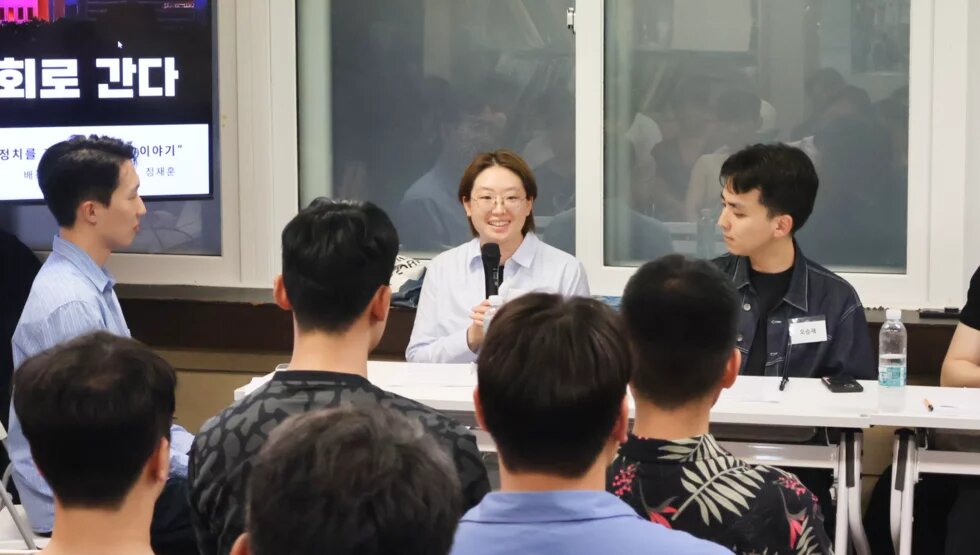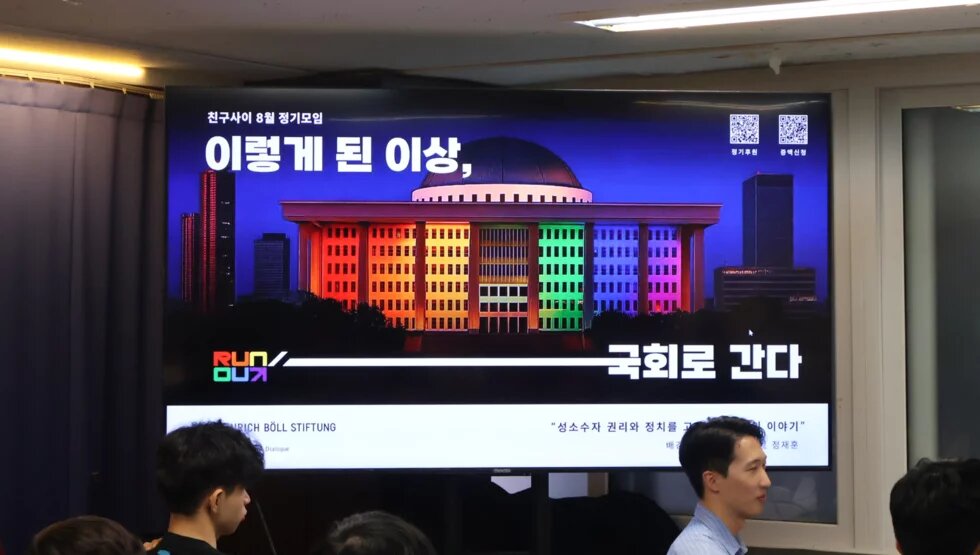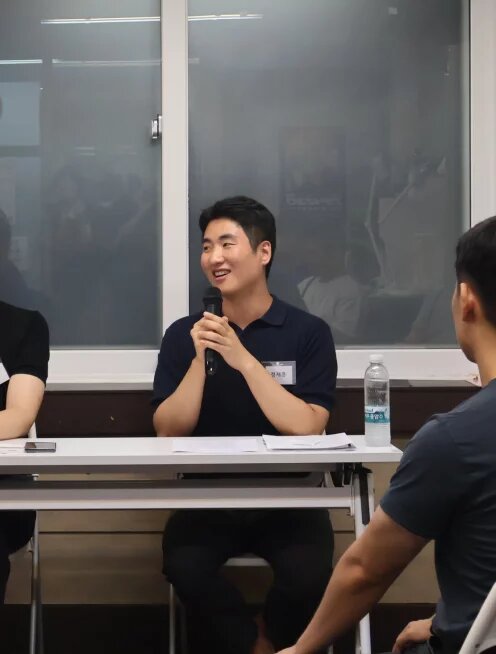
Where do LGBTQ+ individuals stand in Korea’s political landscape? A groundbreaking project is working to change that.

From Invisible to Unstoppable
Meet RUN/OUT—a project mapping queer political capacity and nurturing LGBTQ+ leadership across South Korea. It’s a roadmap for politically curious queer communities, guiding people not just to the ballot box as voters, but toward the podium as candidates.
RUN/OUT launched with its inaugural event, “Enough is Enough! I Will Take It to the National Assembly.” where four insiders—policy advisors, senior secretaries, and media professionals—shared rare insights into the lived realities of queer politics within Korea’s parliamentary system.
The Great Political Hide-and-Seek
So where are queer people in Korean politics? They’re both everywhere and nowhere. The National Assembly has LGBTQ+ staffers, advisors, secretaries, spokespersons, and even elected officials. But most remain closeted, creating a paradox of presence without visibility, influence without voice. Being openly queer in politics means constantly having to prove your worth and defend your right to exist before you can even begin to do your job.
When Background Checks Get Personal
Those who have tried to enter politics know how invasive the system can be. Background checks for LGBTQ+ appointees often veer into uncomfortable territory: questions about same-sex relationships, domestic partnerships, or health insurance dependents. Even the officials asking these questions seem uneasy, underscoring how poorly institutions are equipped to handle queer realities.
Making the Invisible Visible
Since Choi Hyun-sook’s groundbreaking 2008 run as Korea’s first openly LGBTQ+ political candidate—a trailblazer still far too little recognized—queer candidacy has felt more like myth than possibility. RUN/OUT begins by challenging that invisibility through the simple but powerful act of seeing.
In Seoul’s queer neighborhoods—Hongdae, Itaewon, and Jongno—the project hosts screenings of local and international documentaries about LGBTQ+ politicians. These events are part political awakening, part community gathering, with each screening followed by a talk from a Korean LGBTQ+ former candidate. Suddenly, political aspiration is no longer an abstract idea imported from abroad; it’s sitting in the same room, sharing stories and advice over coffee.
Writing a New Playbook
Through these efforts, RUN/OUT and groups like Chingu-sai are slowly writing a new playbook for queer political empowerment. They are building the collective strength of an LGBTQ+ electorate powerful enough to influence elections, creating networks where aspiring politicians can share strategies and find support, and ensuring that queer presence in the National Assembly is no longer something that can be overlooked. Visibility becomes its own kind of power—like glitter in the political machinery, impossible to ignore once it’s there. At the same time, RUN/OUT is preserving the stories of those who ran before, transforming individual experiences into a living archive and a guidebook for future candidates.
Advice for Future Rainbow Warriors
For anyone considering the leap into politics, RUN/OUT’s message is clear: don’t overthink it, but don’t underestimate it either. Politics is not rocket science, though it often feels like an advanced course in human psychology, and it carries the weight of real responsibility. Yet the impulse to fight injustice is itself a political instinct. If you’re already frustrated enough to think “someone should do something,” you may be more ready than you think.
The first step doesn’t have to be monumental. Politics begins close to home—in your neighborhood, your community spaces, your local party office. By bringing conversations into queer spaces where people already feel safe, RUN/OUT shows that participation is not a distant dream but an everyday possibility. And meeting the trailblazers who have already walked this path has a way of transforming “impossible” into “why not me?”
Breaking Down Rainbow-Colored Barriers
The road to representation is never easy, but projects like RUN/OUT prove that someone has to take the first steps. The question is no longer whether queer political participation is possible, but whether enough people are willing to be part of the solution. After all, democracy works best when everyone has a seat at the table—rainbow flags and all.
